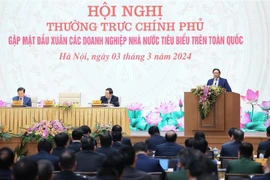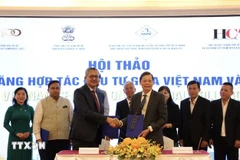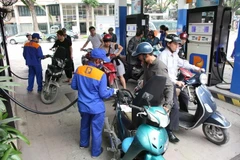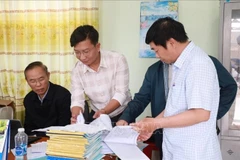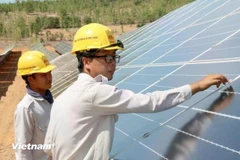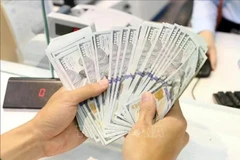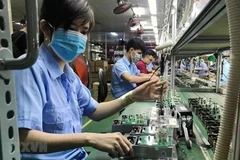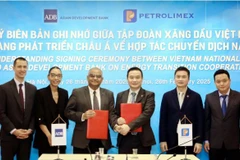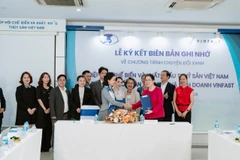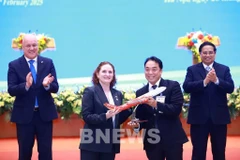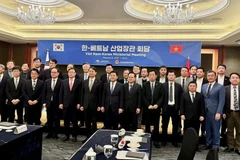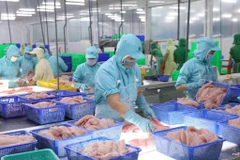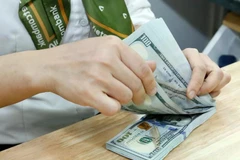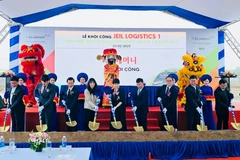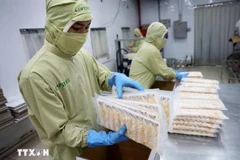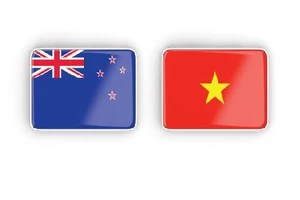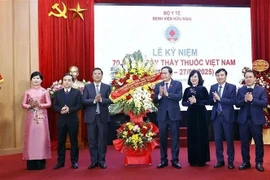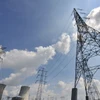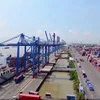Hanoi (VNA) - Prime Minister Pham Minh Chinh on February 27 requested state-owned enterprises (SOEs) to contribute more to the rapid, strong and sustainable development of the economy so as to help Vietnam take off in the coming years.
Addressing a conference between permanent Cabinet members and leaders from SOEs on measures to achieve the double-digit growth target, Chinh lauded the firms' significant contributions to stabilising the macroeconomy, boosting growth, and ensuring major economic balances over the past period, and to the state budget.
However, he noted that these accomplishments are primarily driven by a handful of large enterprises, with the majority of the remainder still underperforming in production and business operations, falling short of expectations and failing to significantly propel the nation’s economic growth.
Therefore, there must be a shift in mindset and approach, closely aligned with reality, Chinh stressed, adding that public strength should be optimised, while institutions and laws should be reviewed, supplemented, and perfected to serve as a catalyst for national development.
Efforts should focus on diversifying markets, products, and supply chains, as well as deepening participation in global supply chains; applying new science and technology to boost labour productivity and reduce resource use, alongside modernising governance with smart approaches.
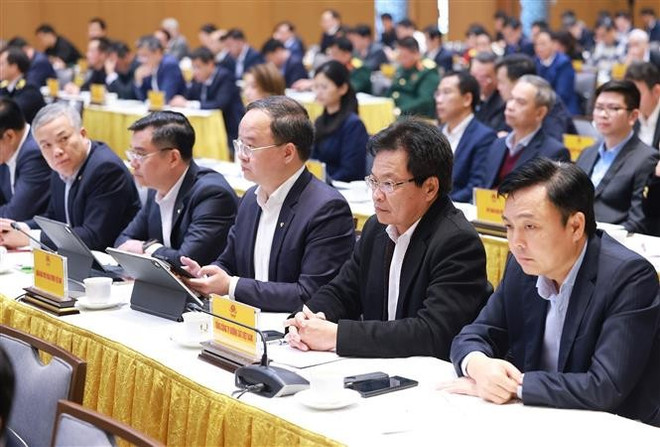
The PM required state agencies to take feedback into account to address the practical challenges facing businesses.
He requested enterprises, especially SOEs, to implement six pioneering initiatives in innovation, digital transformation, and the development and application of science and technology; in making more positive and effective contributions to the three strategic breakthroughs of institutions, infrastructure, and human resources; and in accelerating and achieving breakthroughs to contribute practically to the inclusive, comprehensive, and sustainable growth and development of the country.
Chinh also highlighted the importance of pioneering in developing the digital economy, green economy, circular economy, sharing economy, knowledge economy, and creative economy; in ensuring social welfare, particularly in doing away with temporary and dilapidated housing and building social housing for workers; and in creating high value-added goods, joining global value, supply, and production chains, expanding regionally and internationally to enhance national competitiveness and brand.
The Government leader also requested the continued implementation of Resolution 18-NQ/TW on restructuring and streamlining the organisational apparatus, and enhancing the effectiveness and efficiency of state management, along with more efforts to reduce costs to boost labour productivity and lower product prices.
According to the Ministry of Finance, in 2023, Vietnam had 671 SOEs, including 473 with 100% state-owned charter capital and 198 others in which the state holds more than 50% of the charter capital. Their total assets amounted to nearly 3.9 quadrillion VND (152.6 billion USD), with total revenue exceeding 2.6 quadrillion VND, pre-tax profit reaching 211 trillion VND, and contributions to the state budget surpassing 365 trillion VND. State-owned enterprises play a pivotal and dominant role in several key sectors such as energy security, food supply, telecommunications, petroleum, and finance./.



